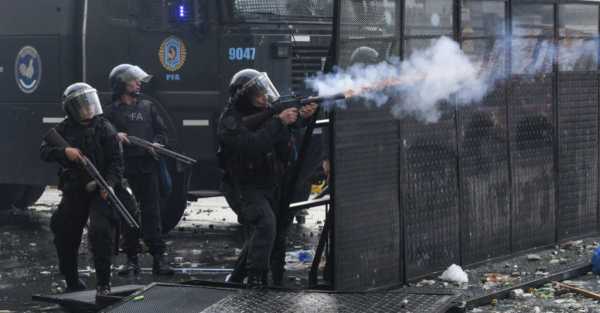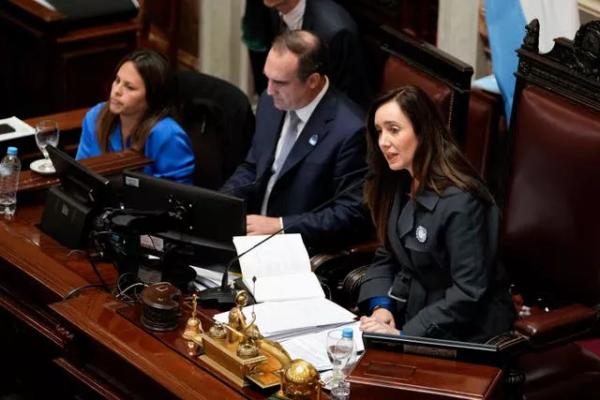
Argentina’s Senate has narrowly approved key state overhaul and tax bills proposed by the country’s president Javier Milei, delivering an initial legislative victory to the libertarian leader in his efforts to enact his promises of radical change.
Senators voted 37 to 36 late on Wednesday to give their overall approval to the overhaul bill after 11 hours of heated debate while protesters — urging politicians to reject Mr Milei’s harsh austerity plan — clashed with police outside Congress.
The senators must approve individual measures in an article-by-article vote which was set to stretch throughout the night.
In a reflection of the fierce backlash to the legislation and deep polarisation gripping Argentina’s Congress, vice president and head of the Senate Victoria Villarruel cast the tie-breaking vote.

The legislation delegates broad powers to the president in energy, pensions, security and other areas and includes several measures seen as controversial, including a generous incentive scheme for foreign investors, tax amnesty for those with undeclared assets and plans to privatise some of Argentina’s state-owned firms.
If the Senate approves the articles with modifications, the lower house still has to back them before Mr Milei can claim his first legislative win since entering office last December.
As senators looked over the bills, protesters in Buenos Aires hurled sticks, stones and Molotov cocktails at police who sprayed water cannons, pepper spray and tear gas to disperse the huge crowds.
Demonstrators poured fuel on two cars and set them alight, turning the central square into a smoke-filled battlefield.
Authorities reported at least 20 police officers had been injured and more than a dozen protesters arrested over the violence.

Mr Milei rose to power on promises he would resolve Argentina’s worst economic crisis in two decades. But his political party of relative novices holds just a tiny minority of seats in Congress and he has struggled to strike deals with the opposition.
Senators approved two bills late on Wednesday, a tax package and a 238-article state reform bill that passed the lower house of Congress in late April. Months of negotiations watered down the initial far-ranging proposal, which had over 600 articles.
Unlike previous Argentine leaders since the return of democracy in 1983, Mr Milei has failed to pass a single piece of legislation during his first six months in office. Instead, the populist outsider has relied on executive powers to slash state spending and sweep away economic restrictions.
Mr Milei’s legislation has faced the stiffest pushback from the left-leaning Peronist movement loyal to former president Cristina Fernandez de Kirchner, which has dominated Argentine politics for the last two decades and holds sway over the country’s powerful trade unions.

The presidency condemned protesters as “terrorists” and accused them of “attempting to carry out a coup d’etat” by disrupting the Congress session.
Over the past month, political tensions have mounted, casting doubt over Mr Milei’s governability and injecting uncertainty into the Argentine economy.
Sovereign bonds have tumbled. The country’s currency, the peso, has depreciated as well, widening the gap between the official and black market exchange rate to nearly 40 per cent.
Even as the IMF has praised the libertarian’s agenda and released tranches of frozen loans, the fund has held back from handing Argentina fresh cash that Mr Milei says he needs to lift currency controls.
Meanwhile, Mr Milei has been in Silicon Valley rubbing shoulders with billionaire tech executives Elon Musk, Tim Cook and Mark Zuckerberg. The meetings have not produced any announcements of substantial investments.
Sourse: breakingnews.ie